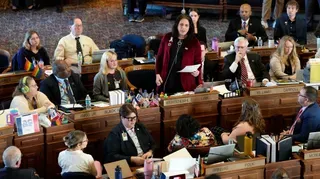May 8, 2012
Britain's Cameron: UK Must Stand By Spending Cuts
Jason St. Amand READ TIME: 3 MIN.
LONDON (AP) - Britain must stick to its tough austerity measures despite doubts elsewhere in Europe over the best remedy to fix the continent's stalled economies, Prime Minister David Cameron insisted Tuesday.
After the election in France of Socialist Francois Hollande, who has vowed to buck Europe's austerity trend, and a Greek race in which voters punished mainstream parties over their support for budget restraint, Cameron said he wouldn't waver over Britain's program of spending cuts.
Fixing the debt-ravaged economy "remains our guiding task and in these perilous times it's more important than ever for Britain that we stick to it," Cameron planned to say in a speech later, according to excerpts released in advance.
Cameron and his deputy Nick Clegg were making a rare joint appearance in Essex, southern England, to gather support for their coalition government amid growing unease over Britain's economic path.
Both Cameron's Conservative Party and Clegg's Liberal Democrats suffered heavy losses in local elections, as voters punished them for spending cuts that are seeing welfare payments trimmed and about 700,000 public sector jobs axed.
Yet analysts warn the most severe elements of a four-year program of about 81 billion pounds ($130 billion) of cuts to government spending have yet to bite - meaning public dissent is likely to grow as living standards decline.
Treasury chief George Osborne has already warned that Britain will likely need two additional years of austerity after the scheduled 2015 national election, a package expected to include a further 23 billion ($37 billion) of budget trimming.
Opposition Labour Party leader Ed Miliband, who won major gains in Thursday's local election, said voters struggling to balance family budgets were dismayed at the government's plans, including a decision to lower taxes for high earners.
"They promised fairness, they promised that we were all in it together," Miliband said. "Things have got worse, not better, because they are standing up for the wrong people."
Last month, Britain's economy slumped back into recession for the first time since 2009 amid stalled growth. While Hollande said he plans to boost growth in France by investing in infrastructure, Cameron said Britain cannot risk new borrowing.
"The eurozone remains in extreme trouble and is in recession, oil prices are making life difficult for families around the world. At home, we inherited an economy built on the sands of debt," Cameron planned to say, according to the text.
Rejecting Hollande's prescription, Cameron said Britain could not borrow its way out of its debt crisis. "We can't burden our children with the costs of paying today's bills tomorrow," the text said.
Vicky Redwood, chief U.K. economist at Capital Economics, acknowledged that political events in Europe could strengthen anti-austerity sentiment in Britain, but said Cameron is unlikely to yield.
"For now the U.K. is still in a better situation than those troubled economies, and the government will stick to austerity plans here," Redwood said.
Chris Williamson, chief economist at financial services company Markit, said results of French and Greek elections would put "pressure on the British government to come up with more growth-focused policies."
"The mood in Europe is swinging toward a lack of enthusiasm for austerity measures," Williamson said.
On Wednesday, Cameron's government will set out its annual legislative program in a speech by Queen Elizabeth II, as she opens a new session of Parliament in a traditionally opulent ceremony.
Grass-roots members of Cameron's party have urged him to focus on boosting economic growth and to sideline plans to introduce same-sex marriage - an extension of civil partnership rights for gay couples - and to reform Britain's unelected upper chamber, the House of Lords.






